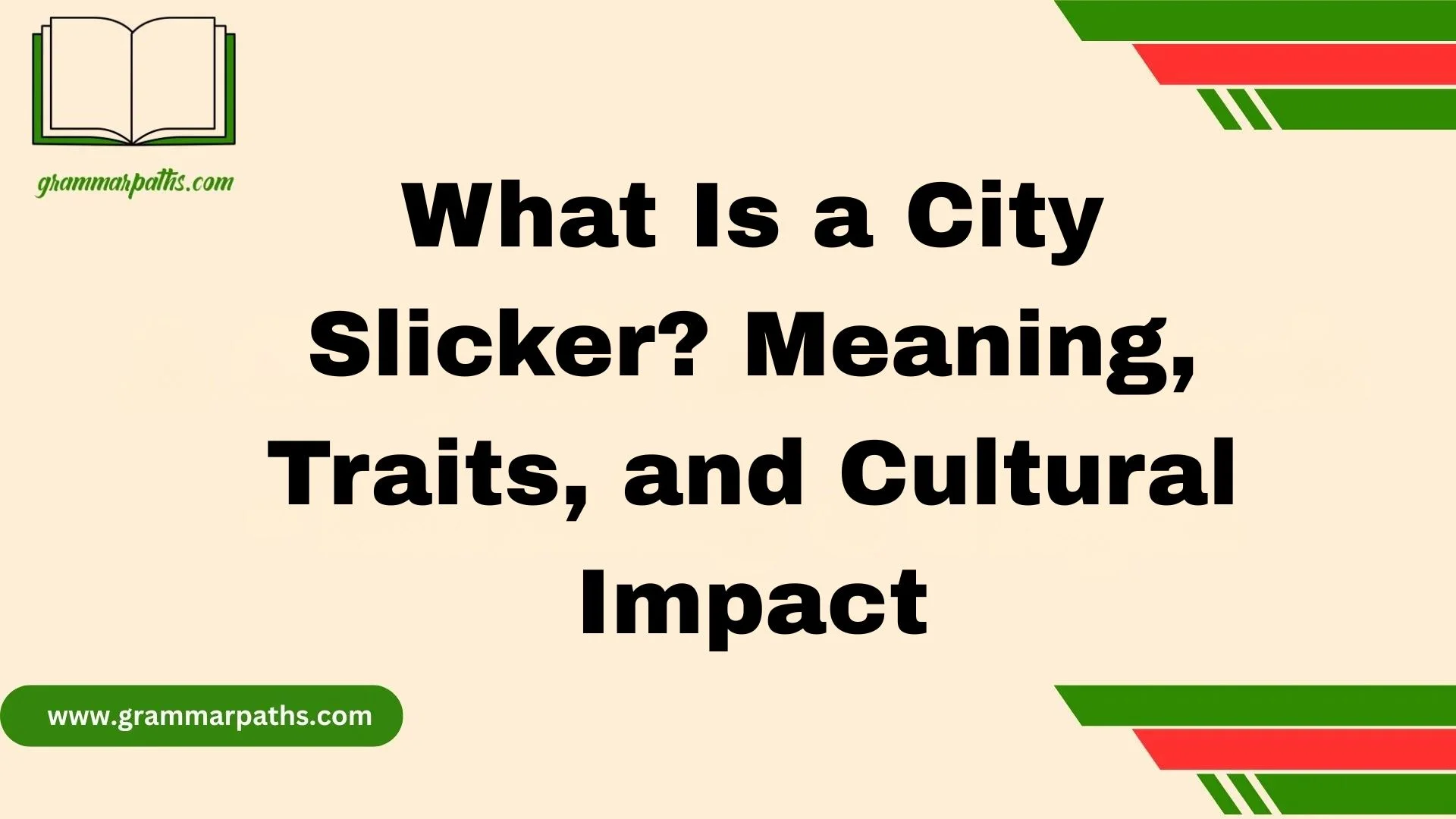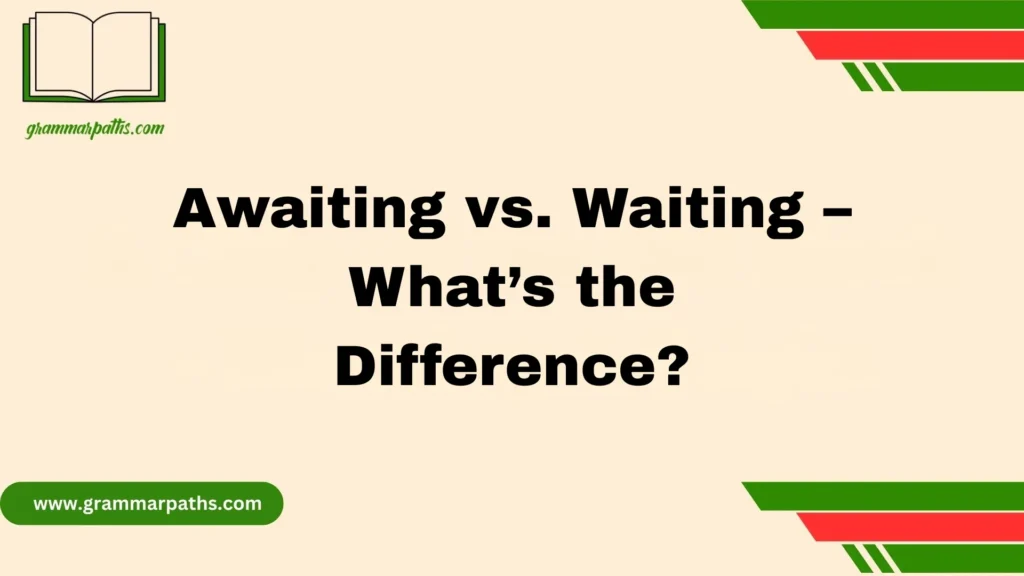The phrase “city slicker” has long been used to describe someone who comes from an urban environment and is often unfamiliar with the rural lifestyle or country living. While sometimes used playfully, the term can also carry stereotypes, painting city dwellers as people who rely heavily on modern conveniences, have little knowledge of manual labor, and may appear out of touch with nature or traditional values.
A city slicker is often contrasted with the country folk or rural communities, highlighting the cultural differences between city life and farm life. These contrasts are reflected in areas such as work ethic, fashion, communication style, and even attitudes toward technology and self-sufficiency. For many, the phrase embodies the clash between fast-paced metropolitan culture and the slower rhythms of rural living.
Beyond its literal meaning, the idea of a city slicker has made a significant mark on popular culture, from movies and television to literature and comedy. Whether it’s used to poke fun at someone’s lack of outdoor skills or to explore themes of modernization versus tradition, the term continues to shape how society views the divide between urban and rural identities.
Definition of a City Slicker
A city slicker is someone who is highly familiar with city life and urban culture, often sophisticated, street-smart, and comfortable in fast-paced environments. Unlike a rural dweller who may struggle with the chaos of urban life, a city slicker thrives on it.
Key characteristics include:
- Urban confidence – comfortable navigating busy streets and public transport
- Social awareness – knowing trends, events, and cultural hotspots
- Polished style – often fashionable and attentive to appearance
Table: City Slicker vs. Rural Perspective
| Trait | City Slicker | Rural Perspective |
| Navigation | Public transport, traffic, shortcuts | Mostly by car, roads familiar |
| Social Life | Bars, galleries, cafes | Community centers, local gatherings |
| Attitude | Fast-paced, opportunistic | Relaxed, routine-based |
| Knowledge | Trends, events, pop culture | Local news, traditions |
This table shows the contrast clearly. City slickers aren’t just stylish—they have a set of skills and a mindset shaped by urban living.
Origin and History of the Term
The term city slicker dates back to the late 19th century in the United States. It emerged during a time when urbanization accelerated and rural Americans began noticing the differences between country and city living.
Historical context:
- Late 1800s – Industrialization brought cities to life; rural visitors often found urbanites fast-talking and seemingly clever.
- Early 1900s – The term became popular in newspapers and literature to describe city dwellers as slick, savvy, and sometimes superficially polished.
Originally, “slicker” implied someone smooth, clever, or cunning. Coupled with “city,” it created a term that captured both admiration and a hint of skepticism. Over time, the meaning expanded, and today it often refers to someone sophisticated, capable, and comfortable in urban environments.
Key Characteristics of a City Slicker
Sophistication and Style
City slickers often display a keen sense of style. Their fashion isn’t just about luxury—it’s about awareness of trends and social settings. They know what works in professional environments, social gatherings, and casual settings.
Examples:
- Wearing a blazer over a casual T-shirt for a trendy café visit
- Accessorizing with smartwatches, scarves, or designer bags
- Choosing shoes that balance fashion and practicality
Style extends beyond clothing. A city slicker’s social grace, dining etiquette, and awareness of cultural norms define their sophistication.
Urban Savvy and Skills
Navigating a city isn’t easy. City slickers master skills that make them efficient and adaptable:
- Public transport expertise – knowing subway schedules and traffic shortcuts
- Networking – leveraging social connections for opportunities
- Problem-solving – thinking fast in crowded or unpredictable situations
Bullet Points of Essential Skills:
- Efficient route planning
- Quick adaptation to cultural norms
- Awareness of city-based scams or risks
- Multitasking under pressure
These skills are not just useful—they’re almost survival tools in a fast-paced urban setting.
Mindset and Attitude
A city slicker’s mindset is distinct: confident, opportunistic, and resourceful. They tend to think strategically, weigh options quickly, and act decisively.
Common traits include:
- Confidence in unfamiliar environments
- Comfort with diverse people and cultures
- Ability to spot opportunities and act on them
This combination of confidence, intelligence, and adaptability often makes city slickers appear almost “magical” to rural visitors.
Perception in Pop Culture
The city slicker has appeared in countless movies, TV shows, and books. Pop culture often exaggerates certain traits for humor or drama:
- Stereotypes: Fast-talking, fashion-conscious, and sometimes naive outside the city
- Classic examples:
- Billy Crystal in City Slickers – embodies the confident, stylish, street-smart urbanite
- Carrie Bradshaw in Sex and the City – fashionable, socially savvy, and deeply connected to urban culture
Pop culture reflects both admiration and playful critique. City slickers are portrayed as sophisticated and intelligent, but occasionally disconnected from simpler, rural lifestyles.
Urban vs. Rural Perspectives
City slickers and rural communities often view each other through a lens of curiosity and skepticism.
Differences in perspective:
- Rural observers may see city slickers as pretentious or overly polished.
- City slickers may view rural lifestyles as slow or unsophisticated.
Case Study:
A 2023 survey by the Urban-Rural Lifestyle Journal found that 65% of rural respondents perceived city slickers as “ambitious but detached,” while 70% of urban respondents viewed rural life as “peaceful but limited in opportunity.”
This contrast highlights the cultural divide that the term “city slicker” represents. It’s both a description and a commentary on urban-rural dynamics.
Modern Usage and Relevance
Today, city slicker is not just about fashion or savvy—it reflects adaptability in a digital, globalized world. Social media, urban startups, and global travel have expanded what it means to be a city slicker.
Modern traits include:
- Mastery of digital tools for urban life
- Engagement with cultural, social, and professional networks
- Awareness of sustainability and ethical urban living
City slickers now often blend style with purpose, using their urban knowledge to navigate modern challenges efficiently.
Examples of City Slickers in Real Life
City slickers aren’t just fictional—they exist in everyday life:
Celebrities:
- Robert Downey Jr. – urban style, cultural awareness, and public persona
- Zendaya – seamlessly combines fashion, social awareness, and media savvy
- Elon Musk – entrepreneurial urban strategist, navigating global cities and trends
Influencers & Entrepreneurs:
- Urban startup founders who leverage city networks and resources
- Fashion bloggers and social media personalities defining urban trends
These examples show that city slickers combine skills, awareness, and confidence to thrive in modern cities.
Table: Traits of a City Slicker – Then vs Now
| Trait | Historical City Slicker | Modern City Slicker |
| Style | Fashionable, well-groomed | Fashionable + tech-savvy |
| Social Skills | Etiquette & networking | Networking + social media influence |
| Mindset | Opportunistic, confident | Strategic, adaptable, culturally aware |
| Skills | Urban navigation, resourceful | Urban + digital navigation, multitasking |
By studying city slickers, we gain insight into urban culture, social dynamics, and the qualities that help people thrive in bustling, modern environments.
Conclusion
The term city slicker captures more than just the difference between urban dwellers and rural communities—it reflects a deeper cultural divide between modern convenience and traditional living. While often used in a humorous or lighthearted way, it also highlights the stereotypes society places on people based on where they live. From fashion and attitudes to lifestyle and work ethic, the concept of a city slicker has become part of both everyday language and popular culture. Ultimately, whether in the city or the country, every lifestyle has its strengths, and understanding these differences helps bridge the gap between urban and rural values.
FAQs
Q1: What does “city slicker” mean?
A city slicker is a term used to describe someone from an urban environment, often seen as unfamiliar with country life or rural traditions.
Q2: Is “city slicker” an insult?
It can be both playful and negative. Sometimes it’s a joke about being inexperienced with outdoor skills, while other times it may imply arrogance.
Q3: Where did the term “city slicker” originate?
The term grew popular in American slang, often used by rural folks to describe urban outsiders.
Q4: Are city slickers always portrayed negatively?
Not always—movies and shows sometimes depict them as learning valuable lessons from rural communities.
Q5: What’s the opposite of a city slicker?
The opposite would be country folk, farmers, or anyone closely tied to rural living and traditional lifestyles.

Mia Rose is the passionate writer and founder of GrammarPaths.com, a resource dedicated to helping learners master English grammar, idioms, and writing skills with ease. With a deep love for language and years of experience in teaching and content creation, Mia simplifies complex grammar rules into clear, practical guides that readers can instantly apply.










